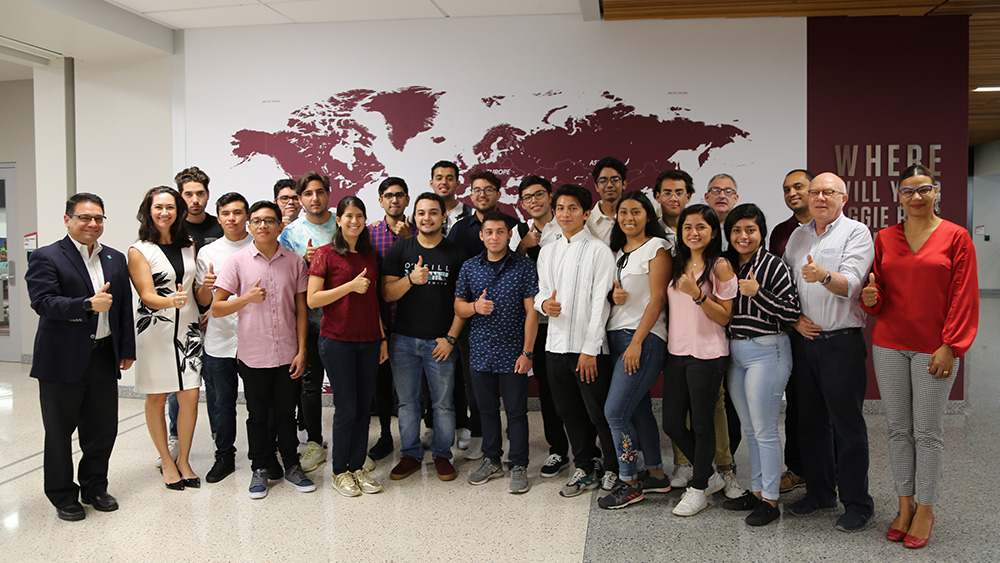
More than 1,000 miles span the distance between College Station, Texas, and Yucatán, Mexico. But a Texas A&M University program is breaking down the boundaries between these two vastly different — yet surprisingly similar — locations. In its fifth year, the International Research Abroad Program (IRAP) came full circle when 17 students from Yucatán traveled to Texas A&M to present their research proposal alongside the undergraduate engineering and geoscience students they had been collaborating with all summer.
“Since the creation of this program five years ago, the idea was to have our students working jointly with Mexican students on regional problems,” said Dr. Maria Alves, director of Halliburton Engineering Global Programs. “Our intention was to build a true partnership to positively impact our students while our partners in Mexico would feel their students are also positively impacted.”
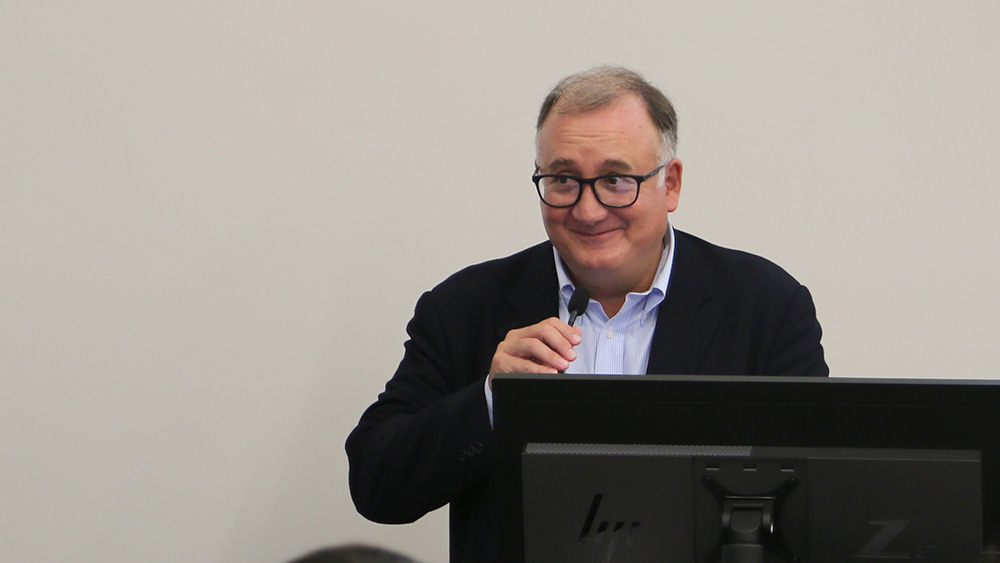
During the closing ceremony held recently in the Zachry Engineering Education Complex, the secretary of research and higher education in the state of Yucatán confirmed that this collaboration is yielding amazing results.
“I want to say that today science and technology play a leading role in economic and social development, and in this highly competitive world we need to make teams,” Maestro Bernado Cisneros Buenfil said. “I can’t think of a better way to make teams than with Texas and Texas A&M University.”
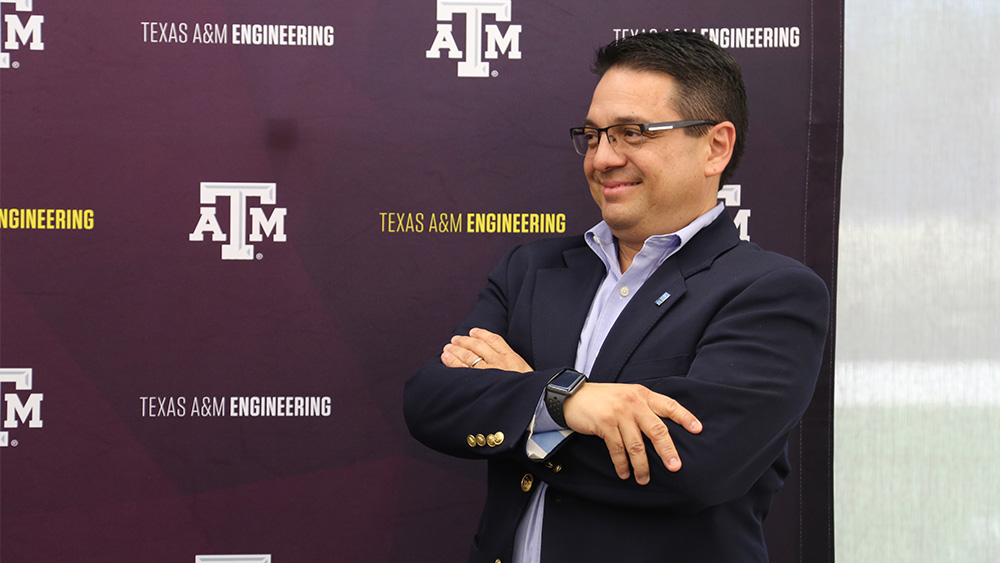
How it began
The IRAP program began five years ago when Dr. Sonia Garcia, director of the Access and Inclusion program, approached Alves about a National Science Foundation grant with the Louis Stokes Alliances for Minority Participation. Access and Inclusion has been receiving funding from the organization for the last five years to help support first-generation engineering students with financial needs. Together, they reached out to Dr. Zenon Medina-Cetina, who developed the Yucatán Initiative Project, to see if his project could be expanded to include undergraduate students. The Yucatán Initiative Project is a collaborative platform for research, academics and service between Texas and Yucatán, Mexico. Medina-Cetina readily agreed, and IRAP was born.
In 2015, 17 Regents Scholars traveled to Mexico to tour research labs and learn about research at the Universidad Politecnica de Yucatán as well as the Instituto Tecnológico del Petróleo y Energía.
Since then, the program has more than doubled with over 200 first-year students having participated from the College of Engineering, the engineering academies and the College of Geosciences.
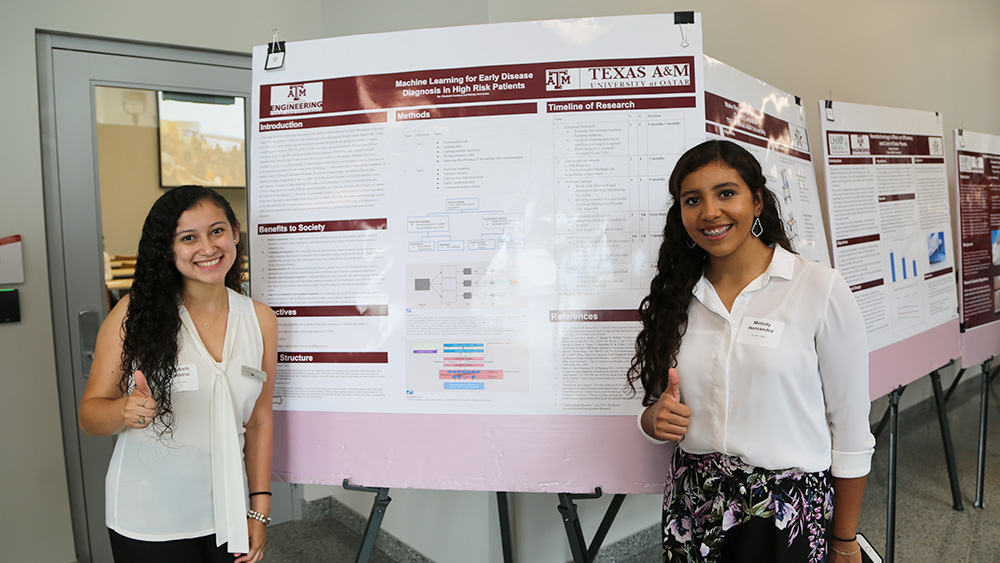
Each May, a cohort of Texas A&M students travel to Yucatán for two weeks and are immersed in Mexican culture. They stay with host families and visit cultural sites such as Uxmal, Chichen Itza, Cenotes and other landmarks of Yucatán’s vast pre-and post-Hispanic history. Students also visit more than a dozen research laboratories of Yucatán’s research consortium, the System of Research, Innovation, and Technological Development of the State of Yucatán. They also take a class that introduces them to research alongside students from the partner institutions, giving them the opportunity to make connections and friendships with Mexican students. After returning to the United States, the students continue communicating and collaborating all summer on a research proposal that they then present in the fall during a poster session.
It has been incredible. That’s the only word to describe it. I think the biggest thing that I really like is that we can interact with people who are different.”
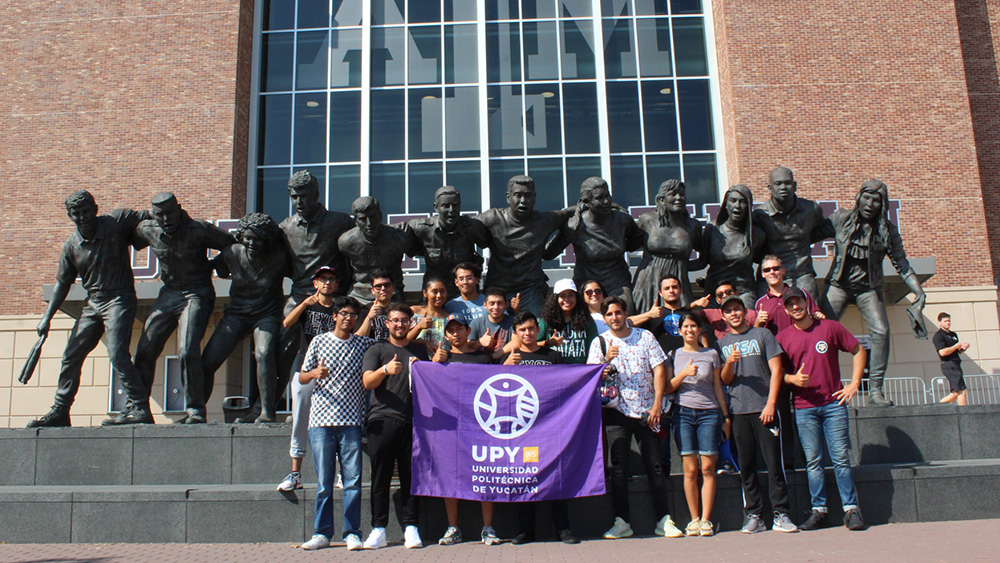
This is the first year that the students from Mexico also traveled to College Station to present their proposal alongside Aggies, thanks to a grant provided by 100,000 Strong in the Americas Innovation Fund. Dr. John Walewski, associate professor of practice in the Zachry Department of Civil and Environmental Engineering, served as principal investigator, with Alves and Medina-Cetina serving as co-principals investigators.
Continued growth
In 2020, the IRAP program will continue expanding to include students from Texas A&M’s College of Education and Human Development.
“Such growth is unprecedented, but also encouraging because of the countless benefits we observe from the student participants,” said Medina-Cetina.
Students who have participated in the program have become inspired to attend graduate school and pursue careers at national labs, he said. And while a major focus of the program is to introduce students to research, another benefit is the cross-cultural connections that are made.
“It has been incredible. That’s the only word to describe it,” said Saulo Acevedo, Universidad Politecnica de Yucatán student. “I think the biggest thing that I really like is that we can interact with people who are different.”
As the president of Acevedo’s university put it — the students discovered what global engineering means.
“You are doing exactly that,” Gildardo Sanchez Ante said during the closing ceremony. “You are solving challenges and working with people from different cultures, different languages … and that is the way the world is.”